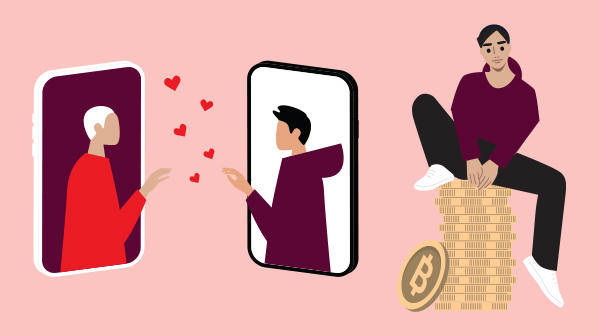
It’s a story that’s become all too familiar — someone slides into your DMs or matches with you on a dating app. The chats get deep, the messages get flirty, and the connection feels real. But then comes a request. Money. Help. A little favour. And before you know it, the person you thought you were building a bond with? Gone. And so is your money.
Welcome to the dark world of romance fraud.
This type of scam isn’t new — but what is new is who it’s affecting. Once thought to only target older adults, romance fraud is now increasingly hitting young people across the UK. And the emotional and financial impact is deep.
Let’s break down what romance fraud is, how it works, and most importantly — how you can spot it and stay safe.
So, What Is Romance Fraud?
Romance fraud (also called a “love scam”) is when someone pretends to be romantically interested in a person online, just to manipulate them into sending money, gifts, or personal information.
Scammers often use fake photos, made-up backstories, and charm to build trust. They’ll message for weeks — even months — before asking for help. By that time, many victims have formed a real emotional attachment.
And that’s the trick. It’s not just financial. It’s emotional fraud too.
The Numbers Don’t Lie
According to Action Fraud, the UK’s national reporting centre for fraud and cybercrime, over £92 million was lost to romance scams in 2023 alone. And while older victims still report the highest losses, young adults aged 18–30 are now one of the fastest-growing groups being targeted.
This shift is due to one key reason: online dating is now normalised among Gen Z and Millennials. From Tinder to Hinge to Instagram DMs, love — or the search for it — happens online.
Scammers know this. And they’re adapting.
Why Are Young People Falling for Romance Scams?
Here’s the thing: being scammed doesn’t mean you’re stupid. It means you were targeted, and scammers are extremely good at what they do.
But here’s why young people are increasingly at risk:
- Digital trust: We’re used to forming friendships and relationships online — many of us have close friends we’ve never even met IRL.
- Financial pressure: With rising living costs, scammers may pose as someone who wants to “invest together” or “help build a future.”
- Low awareness: Romance fraud still carries a stigma. People don’t talk about it, so many don’t know the warning signs.
How to Spot a Romance Scammer
Scammers are slick, but there are common red flags you should look out for:
- Moving fast: Within days, they’re saying how much they like you, how special you are, maybe even that they love you.
- Avoiding video calls: There’s always an excuse why they can’t Facetime or meet up in person.
- Unusual backstory: Military deployment. A foreign business trip. An offshore job. It’s always something that makes meeting up difficult.
- Ask for money or help: It starts small — maybe they’re stuck abroad, or their mum’s in hospital. But it escalates.
- Guilt tripping: If you hesitate, they say things like “I thought you loved me” or “I didn’t expect this from you.”
Real-Life Damage
It’s not just about the cash (though that can be devastating too). Victims often feel ashamed, isolated, and heartbroken. Because they didn’t just lose money — they lost someone they thought they could trust.
That emotional fallout can lead to anxiety, depression, and a serious knock to confidence.
One 22-year-old from London reported losing nearly £5,000 to someone she met on Snapchat, who claimed to be a struggling musician. Another student from Birmingham said she sent Amazon gift cards to a scammer posing as a photographer offering her work. These stories are real, and they’re happening more often than we think.
How Young People Can Protect Themselves
Here’s what you can do to protect your heart — and your wallet:
- Google them: Do a reverse image search of their profile pics. If they show up on other sites or as someone else — red flag!
- Don’t share too much: Be cautious with your personal info. Scammers use emotional manipulation and personal stories to gain your trust.
- Never send money to someone you haven’t met in real life — no matter how close you feel.
- Talk to someone: If something feels off, tell a friend. Outside perspective can help you spot the signs.
- Report it: If you’ve been scammed or think someone else might be, report it to Action Fraud and block the scammer immediately.
Final Thoughts:
Romance fraud is brutal — but it’s not your fault if you get caught up in it. These scammers are professional manipulators who prey on kindness, hope, and the universal desire to feel loved.
But love shouldn’t cost you your mental health or your bank balance.
If you’re looking for love or connection online, just be smart. Protect your peace, trust your gut, and always — always — value yourself enough to walk away if something doesn’t feel right.
Want to share your story anonymously or need support? Drop us a DM on socials or check out Action Fraud UK for more info and support services.



Leave a Reply
You must be logged in to post a comment.